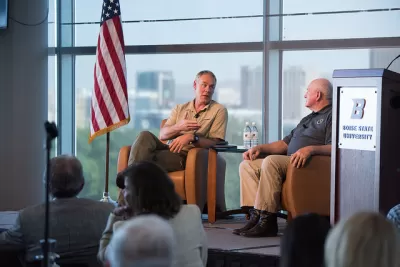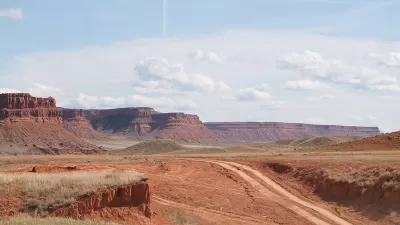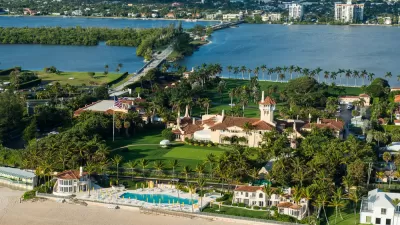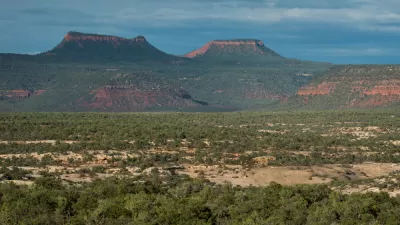Though he’s opened land all over the U.S. to industry, the Interior Secretary is actually pushing to conserve even more of his home state.

Since his first day as secretary of the Department of the Interior, Ryan Zinke has been instrumental in executing the Trump Administration's pro-development, anti-regulatory agenda, which has included reducing national monuments in Utah and making it easier to drill for oil and gas in California (among other states).
But as a state senator and congressman in Montana, Zinke was not so wildly opposed to environmental regulation, even earning high marks from at least one conservation organization. And now, reports The New York Times, he seems to be treating his home state as an exception:
“In the past year, Mr. Zinke has halted the sale of oil and gas leases near Yellowstone National Park, opposed gold mining in that area, and urged the president to protect one national monument, Montana’s Upper Missouri River Breaks, while creating another, the Badger-Two Medicine, just miles from his childhood home.”
He has also pledged to commit “whatever it takes” to rebuild “a cherished century-old backcountry chalet.”
It’s not the first time Zinke has been accused of favoring one state over another for the purpose of advancing a political agenda; after opening up almost all offshore areas under his purview to oil and gas drilling, he then traveled to Florida, where Trump’s favored senate candidate will be challenging a Democrat, and reversed himself.
FULL STORY: Ryan Zinke Is Opening Up Public Lands. Just Not at Home.

Study: Maui’s Plan to Convert Vacation Rentals to Long-Term Housing Could Cause Nearly $1 Billion Economic Loss
The plan would reduce visitor accommodation by 25,% resulting in 1,900 jobs lost.

North Texas Transit Leaders Tout Benefits of TOD for Growing Region
At a summit focused on transit-oriented development, policymakers discussed how North Texas’ expanded light rail system can serve as a tool for economic growth.

Why Should We Subsidize Public Transportation?
Many public transit agencies face financial stress due to rising costs, declining fare revenue, and declining subsidies. Transit advocates must provide a strong business case for increasing public transit funding.

How Community Science Connects People, Parks, and Biodiversity
Community science engages people of all backgrounds in documenting local biodiversity, strengthening connections to nature, and contributing to global efforts like the City Nature Challenge to build a more inclusive and resilient future.

Alabama: Trump Terminates Settlements for Black Communities Harmed By Raw Sewage
Trump deemed the landmark civil rights agreement “illegal DEI and environmental justice policy.”

Dear Tesla Driver: “It’s not You, It’s Him.”
Amidst a booming bumper sticker industry, one writer offers solace to those asking, “Does this car make me look fascist?”
Urban Design for Planners 1: Software Tools
This six-course series explores essential urban design concepts using open source software and equips planners with the tools they need to participate fully in the urban design process.
Planning for Universal Design
Learn the tools for implementing Universal Design in planning regulations.
City of Santa Clarita
Ascent Environmental
Institute for Housing and Urban Development Studies (IHS)
City of Grandview
Harvard GSD Executive Education
Toledo-Lucas County Plan Commissions
Salt Lake City
NYU Wagner Graduate School of Public Service





























